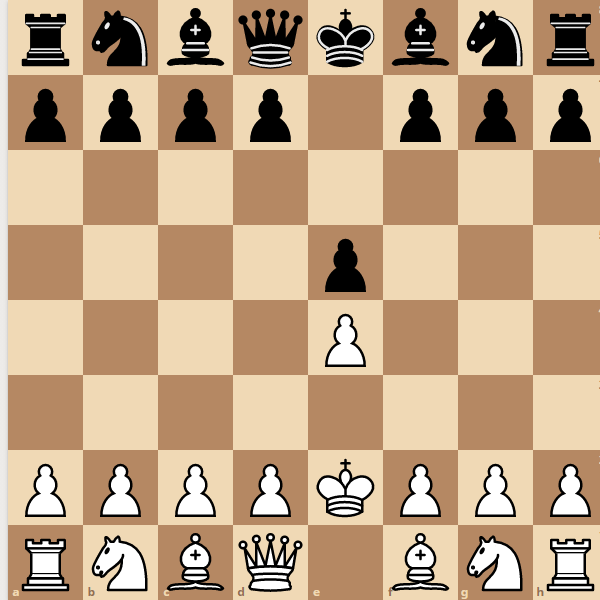Greatest chess player of all time goes for the 'Double Bongcloud' opening
So-named because you'd have to be high to try it.
While it's something of a fool's game to compare players across different eras, the current Chess world champion Magnus Carlsen has a good case for being the greatest player to ever live. He's been a Grandmaster since 2004, became world champion in 2013 (a title he's successfully defended in three championship matches since), and his peak classical rating of 2882 is the highest in history (his current FIDE rating is 2847). And last week, at the Meltwater Champions Chess Tour, he and grandmaster Hikaru Nakamura decided to lean into the memes by playing an opening that has now been dubbed the Double Bongcloud.
There are various explanations for where the Bongcloud nomenclature came from, but it's been around since at least the 90s and seems inextricable from the rise of internet chess. There were rumours that former world champion Bobby Fischer played online in the 90s, and would use this opening to demonstrate his superiority (thanks, Guardian). As that suggests, the joke with the Bongcloud is that it's such a bad move you'd have to be stoned out of your mind to even try it.
The move follows the standard opening of White pushing their king pawn to e4, Black responding with their king pawn to e5, after which White's king moves to e2. Which looks like this:

Let's not get too into the weeds on chess theory but this is as bad as it gets: exposes the king, blocks development of other pieces, prevents castling... it's a stinker. It can be played as a kind of disrespect to one's opponent, but the Bongcloud's sheer daftness in a game where players memorise openings called things like the Sicilian Dragon, the Nimzo-Indian defence or the Ruy Lopez means it's also become a good-natured joke, skewering the chess world's occasional tendency towards pomposity.
Carlsen's opponent in this game, Hikaru Nakamura, is a wonderful player himself and known for humorous chess-based internet shenanigans, including playing the Bongcloud and actually winning in big matches. Which is the necessary context for Carlsen choosing to open against Nakamura with the move, which sees Nakamura instantly crack up, before choosing to respond in-kind. After which neither player can contain their laughter as they shuffle pieces on the way to a draw.
Here we are, in the year of our lord 2021, with two of the greatest players on the planet opening against each other with a Double Bongcloud. Some chess grandees don't take too kindly to such stuff happening in the game of kings: British grandmaster Nigel Short here suggests that "some Twitch generation openings" are "an insult to chess."
Mike Basman used to shock by playing 1.e4 g5!? Although not quite as solid as the Berlin, at least this took control of the f4 square & prepared an extended fianchetto. It was highly provocative, but not an insult to chess - unlike some Twitch generation openings I could name.March 17, 2021
To quote the Dude: that's just, like, your opinion man.
Keep up to date with the most important stories and the best deals, as picked by the PC Gamer team.
Most of the chess grandmasters when I was learning the game were very serious figures indeed, but that was also chess in an era where it was transitioning to the computer age. The game now is almost unrecognisable from the 80s and 90s, and the number of formats and interest that online play has given rise to is surely some sort of golden age. If the price of that is the current generation of grandmasters making a few jokes in minor tournaments, I'm pretty sure chess can weather that.
Certainly going by the reaction of Hungarian grandmaster Peter Leko, who was on commentary duties, and couldn't suppress his own laughter by the end. "Is this called Bongcloud yeah? It was something like of a Bongcloud business," he chortled in disbelief.
As if it needed to be said, this game was a dead rubber: both players had already qualified for the tournament's next stage. When Leko refers to the Berlin stuff he's talking about a high-level play that looks to secure an early draw, i.e. the kind of play one might have expected to see.
Instead, Carlsen and Nakamura laugh, move their kings around a little, and essentially go for a derp draw. They both had a hit of the Bongcloud, laughed their asses off, and peaced out. It's a far cry from Bobby Fischer versus the world but, every once in a while, that's no bad thing.

Rich is a games journalist with 15 years' experience, beginning his career on Edge magazine before working for a wide range of outlets, including Ars Technica, Eurogamer, GamesRadar+, Gamespot, the Guardian, IGN, the New Statesman, Polygon, and Vice. He was the editor of Kotaku UK, the UK arm of Kotaku, for three years before joining PC Gamer. He is the author of a Brief History of Video Games, a full history of the medium, which the Midwest Book Review described as "[a] must-read for serious minded game historians and curious video game connoisseurs alike."

